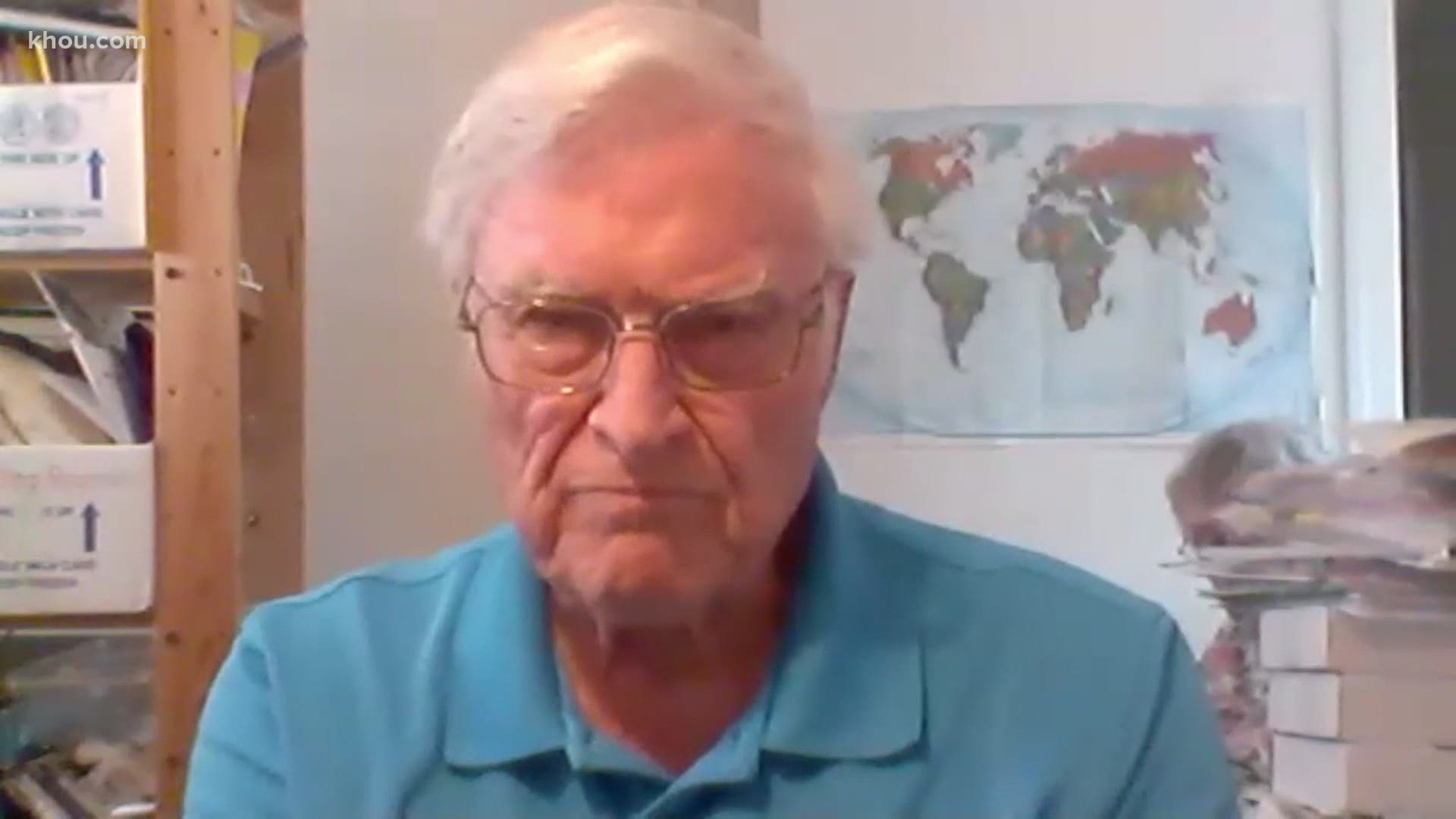HOUSTON — Operational changes at the U.S. Postal Service are causing delays in mail deliveries all over the country. A man in Humble said he had to go without his daily heart medication for a week due to the delays.
Don White, 82, said he has been tracking the package and said it remained at a north Houston mail processing facility for 10 days. He’s hoping to get in on Monday.
He said he's irritated by the situation because his mail-order medication has never been this late before.
"There have been a few times in which it’s taken a week, week and a half, two weeks, but this is the first time I actually ran out and checking with the post office didn't do much good, even though I had a tracking number on it,” White said.
He said in the meantime, his daughter has helped him get the medication at a local grocery store pharmacy.
We reached out to the USPS and they sent us a statement reading in part, "The Postal Service is flexing its available resources to match the workload created by the impacts of the ongoing Coronavirus (COVID-19) pandemic. We appreciate the patience of our customers and apologize for any inconvenience that may have been experienced."
Here's the full USPS response:
"The Postal Service is flexing its available resources to match the workload created by the impacts of the ongoing Coronavirus (COVID-19) pandemic. We appreciate the patience of our customers and apologize for any inconvenience that may have been experienced. We also appreciate the efforts of employees as conditions change on a day-to-day basis.
"The Postal Service has long-standing processes to align workforce to workload, including contingencies to respond to events like the COVID-19 pandemic. The Postal Service maintains steady communications with mailers during events that require specific responses and advises residential customers and business mailers with regard to postal facility disruptions that may impact delivery in an affected area via its USPS Service Alerts webpage at about.usps.com/newsroom/service-alerts/.
"As the Postmaster General recently reiterated, the Postal Service is in a financially unsustainable position, stemming from substantial declines in mail volume, and a broken business model. We are currently unable to balance our costs with available funding sources to fulfill both our universal service mission and other legal obligations. Because of this, the Postal Service has experienced over a decade of financial losses, with no end in sight, and we face an impending liquidity crisis.
"As we have repeatedly stated, Congress and the Postal Regulatory Commission must enact legislative and regulatory reforms to help address the situation. At the same time, it is imperative for the Postal Service to operate efficiently and effectively while continuing to provide service that meets the needs of our customers. We recognize that there are alternatives to every product that we offer, and for that reason, high-quality, reasonably-priced service is an imperative, but it is equally important to note that high-quality service and efficient service are not mutually exclusive, but in fact necessarily go hand-in-hand if we are to be self-sustaining as required by law. Indeed, achieving both is the only way that the Postal Service can continue to survive as a self-funded entity and to provide prompt, reliable, and reasonably-priced universal postal services for all Americans over the long-term.
"As such, we are vigorously focusing on the efficiency of our operations as a fundamental strategy to enable the provision of high-quality service in a financially sustainable manner. To start with, we have taken immediate steps to better adhere to our existing operating plans, which were developed precisely to ensure that we meet our present service standards in an efficient and effective manner. By running our operations on time and on schedule, we will enhance our ability to be sustainable and to be able to continue to provide high-quality, affordable service. Of course, we acknowledge that temporary service impacts can occur as we redouble our efforts to conform to the current operating plans, but any such impacts will be monitored and temporary as the root causes of any issues will be addressed as necessary and corrected as appropriate. Further, we will also continually review our operational practices and make adjustments as required to ensure that we operate in an efficient and effective manner."

